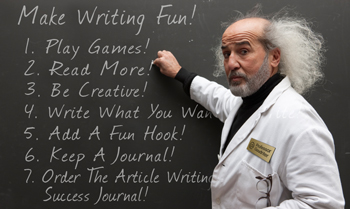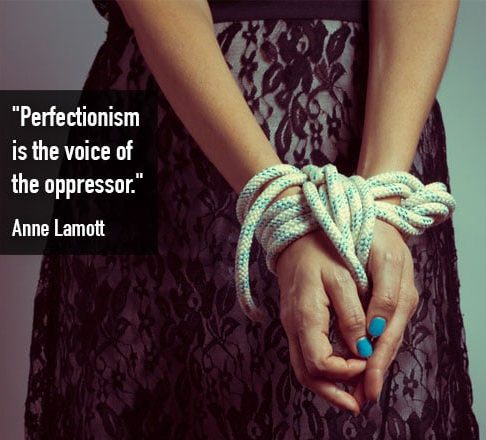What Does it Take to Be a Real Writer?
Today’s guest post is by Sara Crawford.
Writing has always been my life.
I have been writing ever since I was very young. When I was in the first grade, I used to write little plays and have the neighborhood kids perform them on the driveway. (“But, Sara, I want to play baseball.” “You have to rehearse.”)
I have written poetry, novels, nonfiction, songs, plays, and screenplays. I got an undergraduate degree in English and a master’s degree in creative writing. There’s a Morrissey song in which he says, “She lives for the written word, and people come second or possibly third.” That’s always been me.
So when I graduated from grad school, I naturally expected that I would immediately make a living as a writer. I had to start freelancing to make ends meet. I discovered that everyone needed web content, and a lot of people were willing to pay for it.
I wrote about everything from urology to dental care to addiction to lawn care. But I used to feel like I “wasn’t a real writer” because I wasn’t making a living from my novels or plays. I would spend all day writing blog posts and web content, but if I didn’t get any writing done on my creative writing, I would feel as if I hadn’t written anything.
I continued to work as a freelancer for years. Recently, I got a job as a content strategist for a marketing agency. I still spend most of my time writing web content and blog posts, but now I do it for their clients instead of having to find my own.
And still. I can write 4,000 words in a day, but because they are all for blog posts or websites that have nothing to do with my fiction, sometimes at the end of the day I’ll feel as if I haven’t written anything if I haven’t gotten a chance to work on my novels.
I decided recently that this is crap.
Here are a few things you need to remember about being a “real writer.”
- If you write, you’re a real writer.
You can write novels, you can write blog posts, you can ghostwrite books for other people. It doesn’t matter what you write. You’re still a real writer.
As writers, we always place caveats on whether or not we’re “real” writers. I’ll feel like a writer when I get a literary agent, when I get published, when I become a best seller, when I win an award, when I see a stranger reading my book, whatever it is.
I’m here to remind you that as long as you’re writing at all, you’re a writer. You don’t have to write every day, you don’t have to be writing award-winning literary fiction, and you don’t have to be making money on your words to be a “real” writer.
- All writing is good practice.
No matter what you’re writing about, writing anything will make you a better writer than you were yesterday.
That blog post about real estate, that website for the dentist, or that romance novel you ghostwrote, all of these things will give you practice writing. You may have to find different ways to explain the same thing over and over, you may have to look up unique words to use, you may even have to work on a narrative arc.
One of the best ways to learn about the craft of writing is to actually write. You can then incorporate what you learned into your own fiction.
- To make a living writing, you have to have multiple streams of income.
Making a living as a writer is possible. Making a living writing books is even possible. But for the majority of us writers, in order to do that you have to have multiple streams of income.
This could mean teaching. This could mean ghostwriting. This could mean writing web content about lawn care. You’re still making a living creating content of some kind.
So the next time you start to feel down because you haven’t gotten published yet or you have to freelance to make enough money to survive or you haven’t made the New York Times best-seller list yet, remind yourself that the only thing it takes to be a “real” writer is the actual act of writing.
What kind of writing do you do that makes you a writer (even if it’s not what you really want to be writing)? What do you learn from it? Share in the comments!
 Sara Crawford is a digital content strategist for WT Digital Agency and an author/playwright from Marietta, Georgia. She is the author of The Muse Chronicles trilogy and The 30-Day Writing Challenge, which is free on Amazon!
Sara Crawford is a digital content strategist for WT Digital Agency and an author/playwright from Marietta, Georgia. She is the author of The Muse Chronicles trilogy and The 30-Day Writing Challenge, which is free on Amazon!












I guess I’m spoiled–I have a day job I actually like, that leaves enough time for writing my fiction. I’ve gotten into the habit of writing a page during my half-hour lunch break, and write all my first drafts that way.
What I’ve learned from that–being able to write from 12:30 to 1:00, and no longer–is time management. Which I much need.
That said, I once had an intern-pastor friend who was assigned to write a church devotional. He called me, and I lugged my portable word processor over to his house and ghost-wrote it for him. He paid me with a burrito. I’ve always counted it as one of my best writing jobs. 🙂
It’s great to have a day job you actually like! That’s how I feel about my current day job!
Getting paid in burritos is totally valid. Haha.
I’m glad you have a day job that you like! I love my day job at the marketing agency as well.
Getting paid in burritos is totally valid. Haha.
Hi Sara,
I work full time doing IT support. I remember John Grisham said that for most, writing would be a hobby until the day you got paid enough to do it full time. Or someone else is funding your basic needs.
I find that balance is the key, regardless of what you write, or what you do that is work. Too much of anything becomes a chore. Yes, there’s a time to push yourself to get up a hill but if all you do is hill climb, your soul will run dry.
Changing your perspective can help, but for my life, I had to step back and assess how much time I was at the keyboard. We aren’t meant to be sitting at a keyboard, we’re meant to be physical. This means more than just the gym (I go three times a week), or yoga sessions.
Our characters grow by performing tasks that make them learn, adapt, become more than they were, and strive to become a person that contributes to the circle of life. This means you’re not just a leech that only invests to make more money to invest and to buy yourself toys. This is about maturing as an individual–something that we aim for with our characters, but are we in real life?
So yes, I understand how writing ad copy, stuff to make others money–isn’t cutting it. But it pays your bills.
A good exercise is to pretend you were living your last year on this planet. Whatever you do, is it what you would do? If not, then you know where you stand on the reason you do it.
Society is setup like a game by those with power over those without. This is clear and makes for great story (Carnival Row for example). But within these constraints, it’s up to us to realize what fulfills us and what does not.
Thanks for the post!
Kerry
Thanks for reading! I like the idea of thinking about whether or not you would be doing what you’re doing if it was the last year of your life. That’s a great exercise!
Sara
I love doing multiple streams of income. So … I am a writer, writing coach, and an editor. But I still reserve one day for my own creative words. By the end of 2019, I will have written and published 3 books – my stuff. It CAN be done.
Exactly! Congrats on your three books! That’s quite an accomplishment.
Sara
I liked this post, Sara. I also like how you’ve come to OWN your writer status.
“I’ll feel like a writer when I get a literary agent, when I get published, when I become a best seller, when I win an award, when I see a stranger reading my book…”
Yes, this is crap. LOL.
If it helps to know, many writers feel this way, even after they’ve hit their stride. I’m on my third agent. I’m traditionally published. I’ve hit best seller lists, must read lists, and won Kobo’s Best Emerging Author Award. I’ve even had strangers stop me at the mall to say they love my book. YET, there are days, weeks, months, I feel like I am no longer a writer.
I am a professional editor. I spend all day working with authors, publishers, business owners, helping them find the magic in words. While I love what I do (for a living), I worry it takes me away from my work-in-progress. I strugle with imposter syndrome. How can I say I’m a writer when I’m not writing MY OWN manuscripts?
I like your advice. I am a writer because I write. Period.
Thanks for making my day.
Yours,
Dee
Award-winning author of A Keeper’s Truth, GOT, and No Apology For Being
Yes! You are a writer because you write. Period!
Thanks for reading!
Sara
You make some excellent points here, particularly about income, but I can relate to all your observations, as well as the experiences of the folks here. Over the years I’ve taught, illustrated, painted, supported tertiary students with disabilities etc., and for ages only wrote in large blocks separated by years! Then along came the internet and writing sites, and because I had downtime at work I was able to do nothing but write. Bliss! That uninterrupted time, then going back to uni with it academic writing, all led to my first published book, a sequel on the production line, and masses of sequels in my computer – not to mention regular writing on a short story site. And so it goes on. Great stuff.
Thanks for reading, Sue! It’s cool that you have been able to write during your downtime at work. Congrats on your published book and all of your sequels!
Sara Crawford
Thank you so much for this. As a writer – who has a very different day job – this spoke to me. I often feel like I can’t (or shouldn’t?) really call myself a “writer” because of that. But writing has always been where my heart is and your piece made me feel confident in calling myself a true writer. thank you 🙂
This so resonates with me! I have 6 fiction and one recipe book published, another one on the way at the publisher, another on its 2nd rewrite and a novella almost ready to send off. Oh, and one in a metaphorical drawer, waiting to be finished. I blog, but only once a week, post on Facebook, instagram, goodreads etc, and also write the occasional poem. Yet I don’t describe myself as a writer. (Neither does my family, incidentally.)
I went to an art class a nimber of years ago, and we were all amateurs. The teacher was very fond of telling us that we were all artists. We produced art, so we were artists.
We should not be embarrassed to introduce ourselves as writers.
I like this perspective about what it means to be a real writer. If you practice writing, you will get better as a writer. I think that was much is clear, but I also think this growth is accelerated by approaching many different kinds and styles of writing. So, both in your own fiction writing and in your content marketing job, it helps to practice variety.